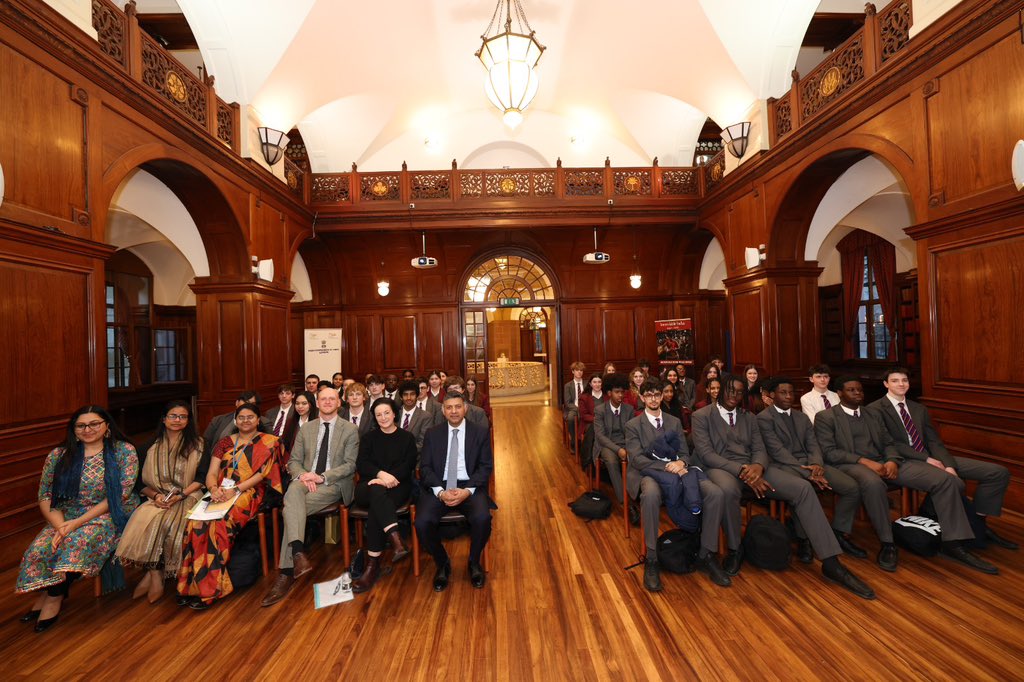Business & Economics
Curriculum Overview
GCSE Business Studies
|
|
Contact Teacher(s): Mr P Kelleher |
Lessons per Week: 2 |
|
Examination Board: AQA |
Specification No: 8132 |
Qualification: GCSE |
|
Course Content 1. Business in the real world 2. Influences on business 3. Business operations 4. Human resources 5. Marketing 6. Finance |
||
|
Assessment This qualification is linear, which means that students will sit all their exams at the end of the course. Paper 1 – Influences of operations and HRM on business activity (units 1-4) Written exam: 1 hour 45 minutes, 90 marks, 50% of GCSE Paper 2 – Influences of marketing and finance on business activity (units 1, 2, 5 and 6) Written exam: 1 hour 45 minutes, 90 marks, 50% of GCSE Textbook: AQA GCSE (9-1) Second Edition Business by Malcolm Surridge and Andrew Gillespie
|
||
BTEC Business
|
Subject: Pearson BTEC Level 3 National Diploma in Business |
Contact Teacher(s): Mr Martland- Head of Business and Economics |
Lessons per Week: 4.5 |
||||||||||||||||||||||||||||||||||||||||||||||||||
|
Examination Board: Edexcel/Pearson |
Specification No: 601/7157/1 |
Qualification: BTEC (Equivalent to two A-Levels) |
||||||||||||||||||||||||||||||||||||||||||||||||||
|
Course Content The course is equivalent in size to two A Levels. Units are assessed using a grading scale of Distinction, Merit, Pass and Unclassified. Qualifications are graded using a scale of PP to D*D*. There are 8 units, of which 6 are mandatory, and 3 are external. The Diploma is designed to be the substantive part of a 16–19 study programme for learners who want a strong core of sector study. This programme may include other BTEC Nationals or A Levels to support progression to higher education courses in business areas before entering employment.
Mandatory units There are 6 mandatory units. Learners must complete and achieve a pass grade or above all the 3 mandatory external units. Learners must complete all 3 mandatory internal units and achieve a pass or above in at least 2 units.
Optional units Learners must complete at least 2 optional units. |
||||||||||||||||||||||||||||||||||||||||||||||||||||
|
Assessment Year One
Year Two
|
||||||||||||||||||||||||||||||||||||||||||||||||||||
A-Level Business
|
Subject: A-Level Business |
Contact Teacher(s): Mr P Kelleher |
Lessons per Week: 4.5 |
|
Examination Board: Edexcel |
Specification No: 9BSO |
Qualification: A-Level |
|
Course Content Year 1 Content Theme 1- Marketing and People Theme 2- Managing Business Activities Year 2 Content Theme 3- Business Decisions and Strategy Theme 4- Global Business |
||
|
Assessment (based on doing A-Level and not AS level) Paper 1- Marketing, People and Global Business
Paper 2- Business Activities, Decisions and Strategy
Paper 3- Investigating Business in a Competitive Environment
|
||
|
Key Assessment and Dates Based on the new system introduced in 2017, all three examinations will take place in the second year of study. |
||
|
Homework One per week |
||
|
Textbook Pearson Edexcel A-Level Business by Ian Marcouse, Andrew Hammond and Nigel Watson |
||
A-Level Economics
|
Subject: A-Level Economics |
Contact Teacher(s): Mr K Martland |
Lessons per Week: 4.5 |
|
Examination Board: Edexcel |
Specification No: 9EC0 |
Qualification: A-Level |
|
Course Content The A-level specification is structured into four themes. In this structure, students are introduced to core economic concepts and principles and develop an understanding of microeconomic and macroeconomic issues, before building on this core knowledge and understanding to consider more complex issues and wider contexts. In this thematic approach, progression is continuous as students develop their knowledge and understanding throughout the course of study. Students use economic models to help them understand the complexities of the world around them, and use data to help them analyse markets and economies, and how governments try to influence both. Students are introduced to different perspectives, aspects of economic history and develop an understanding of economic issues. |
||
|
Assessment (based on doing A-Level and not AS level) Paper 1- Assessing themes 1 and 3: 2-hour paper- 35% of A-level Paper 2- Assessing themes 2 and 4: 2-hour paper- 35% of A-level Paper 3- Assessing all themes- 30% of A-level |
||
|
Key Assessment and Dates All examinations will take place in the second year of study. |
||
|
Homework One per week |
||
|
Textbook Edexcel AS/A Level Economics Student book (2015) - Alain Anderton ISBN-13: 978-1447990550 |
||




